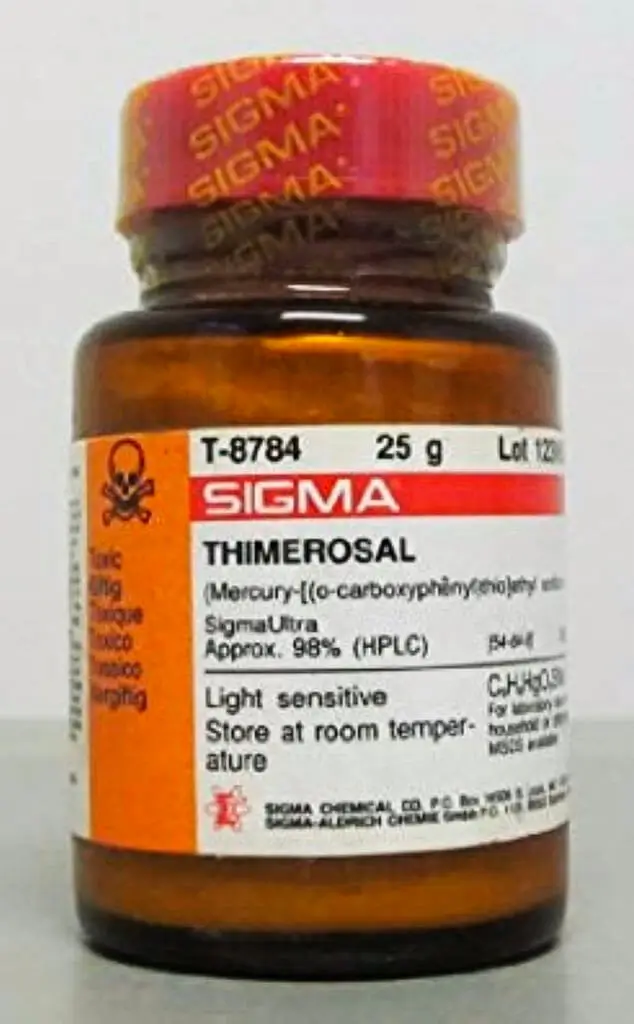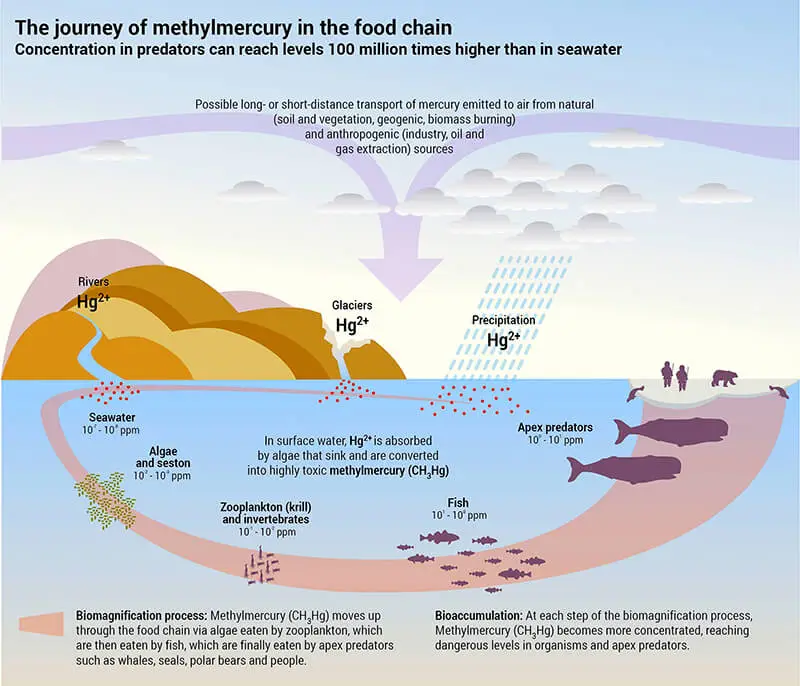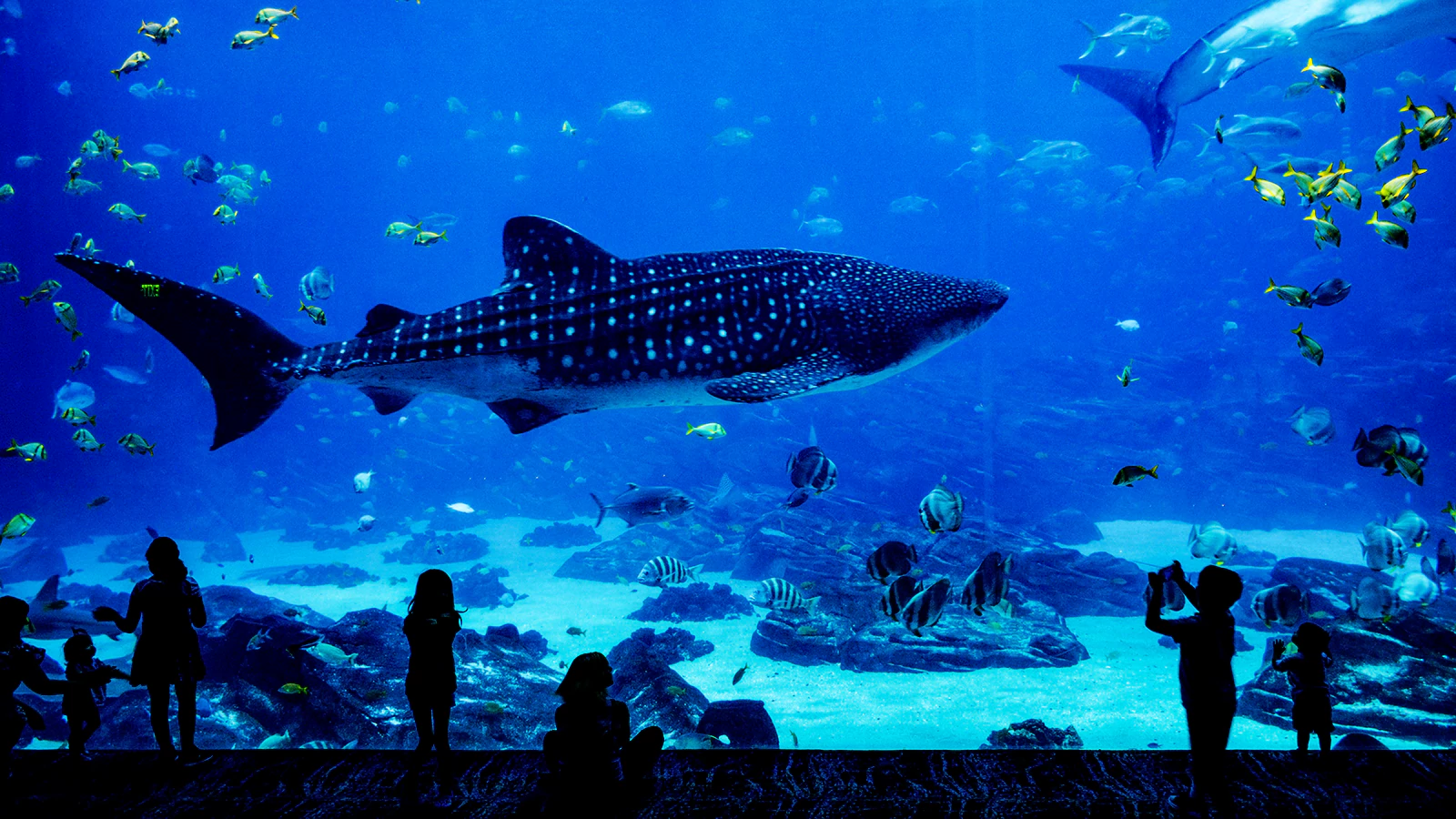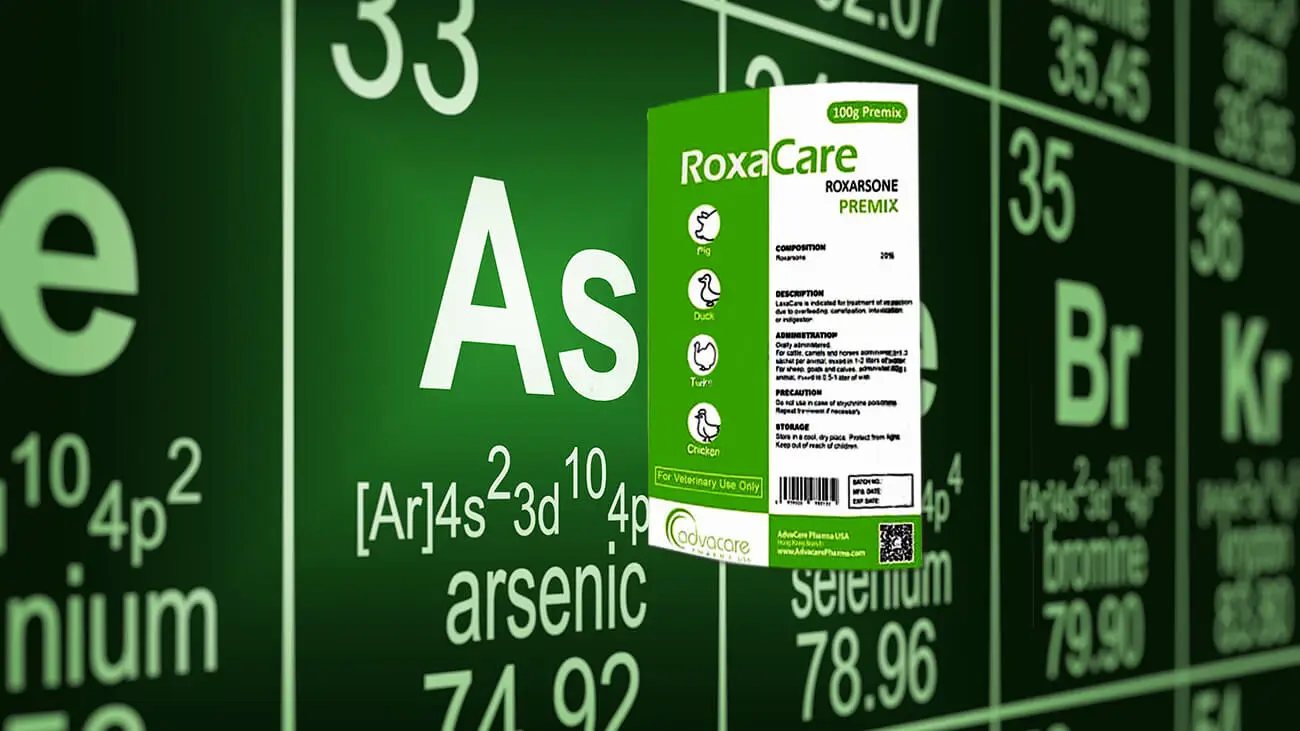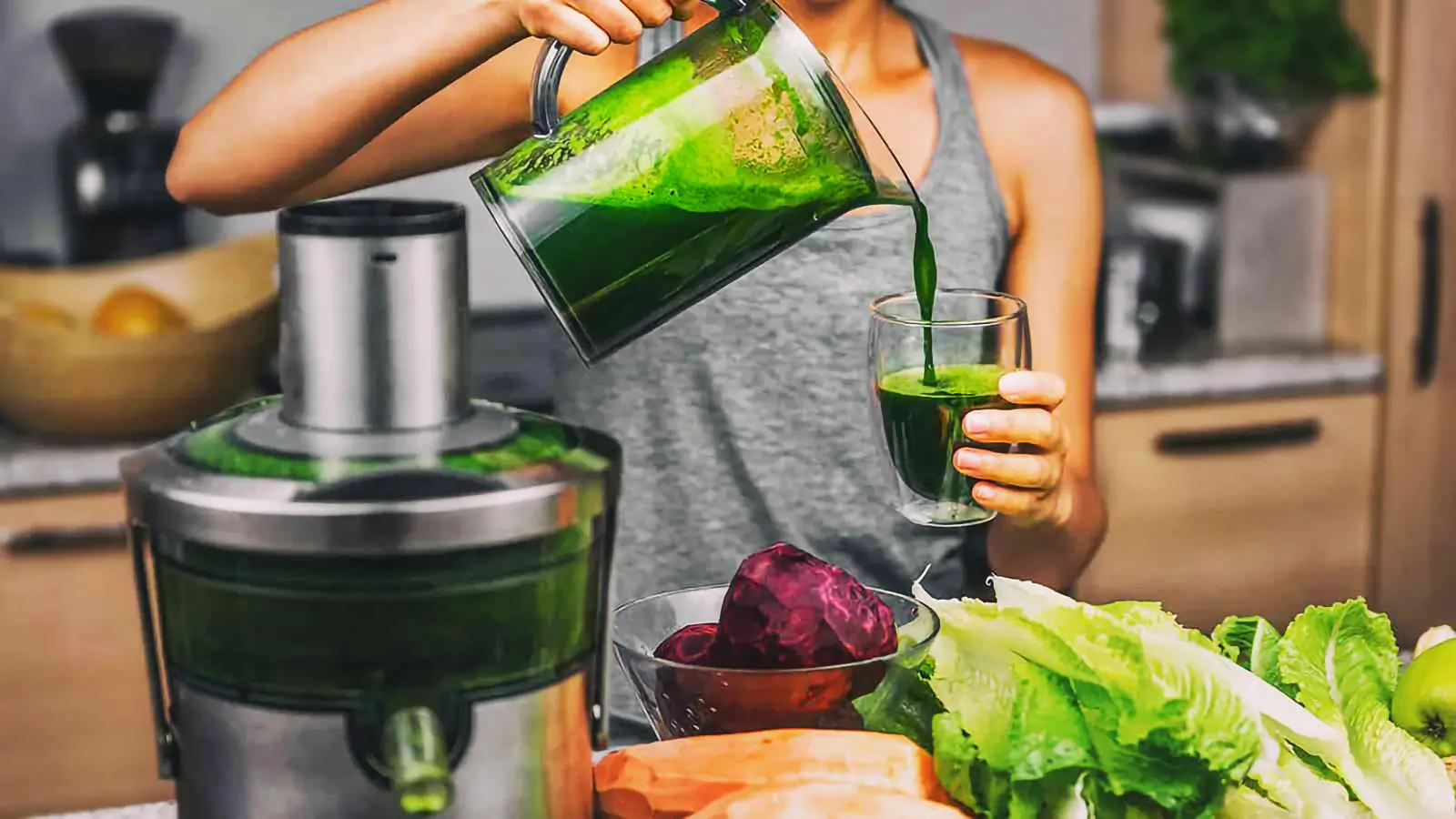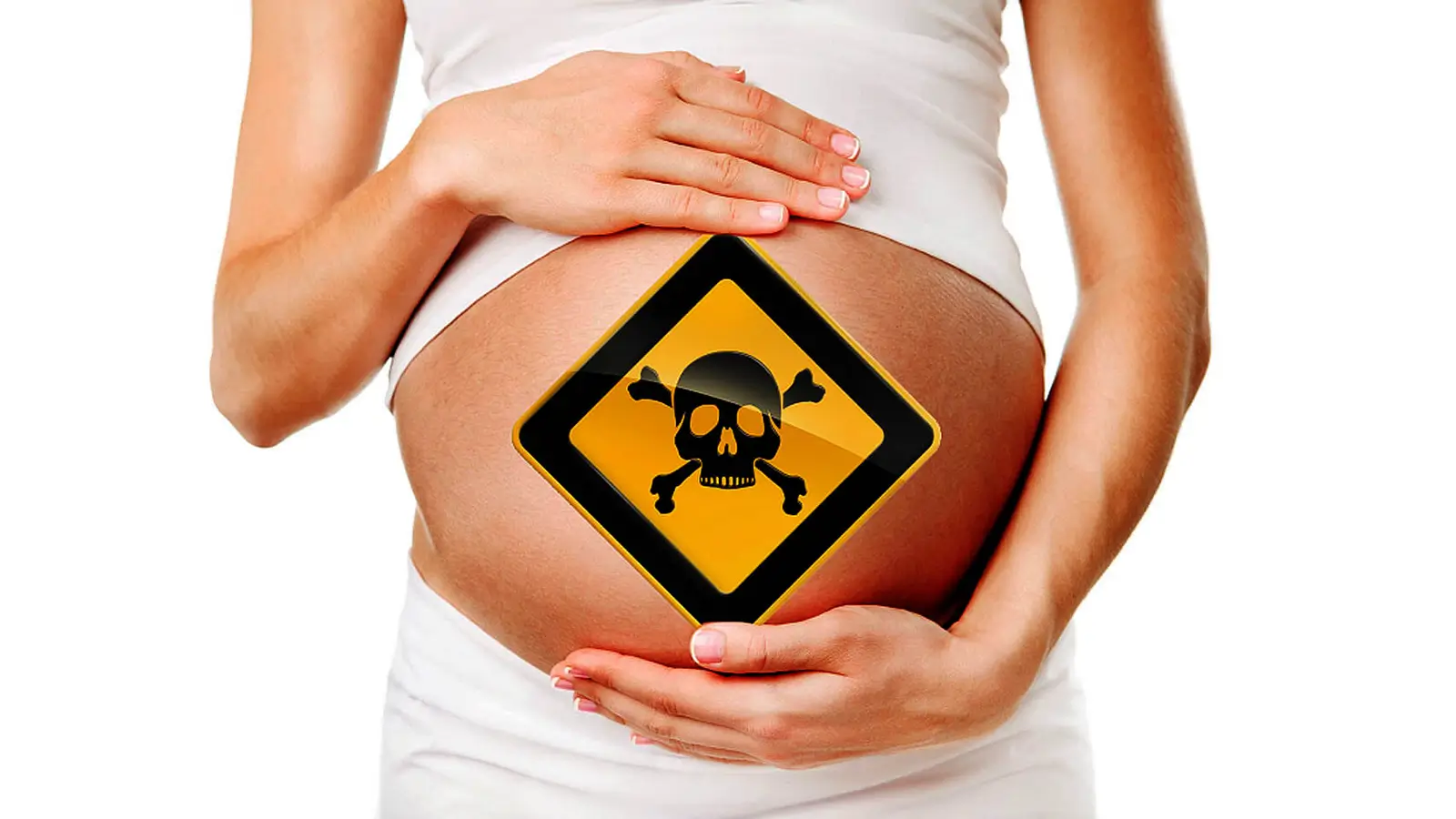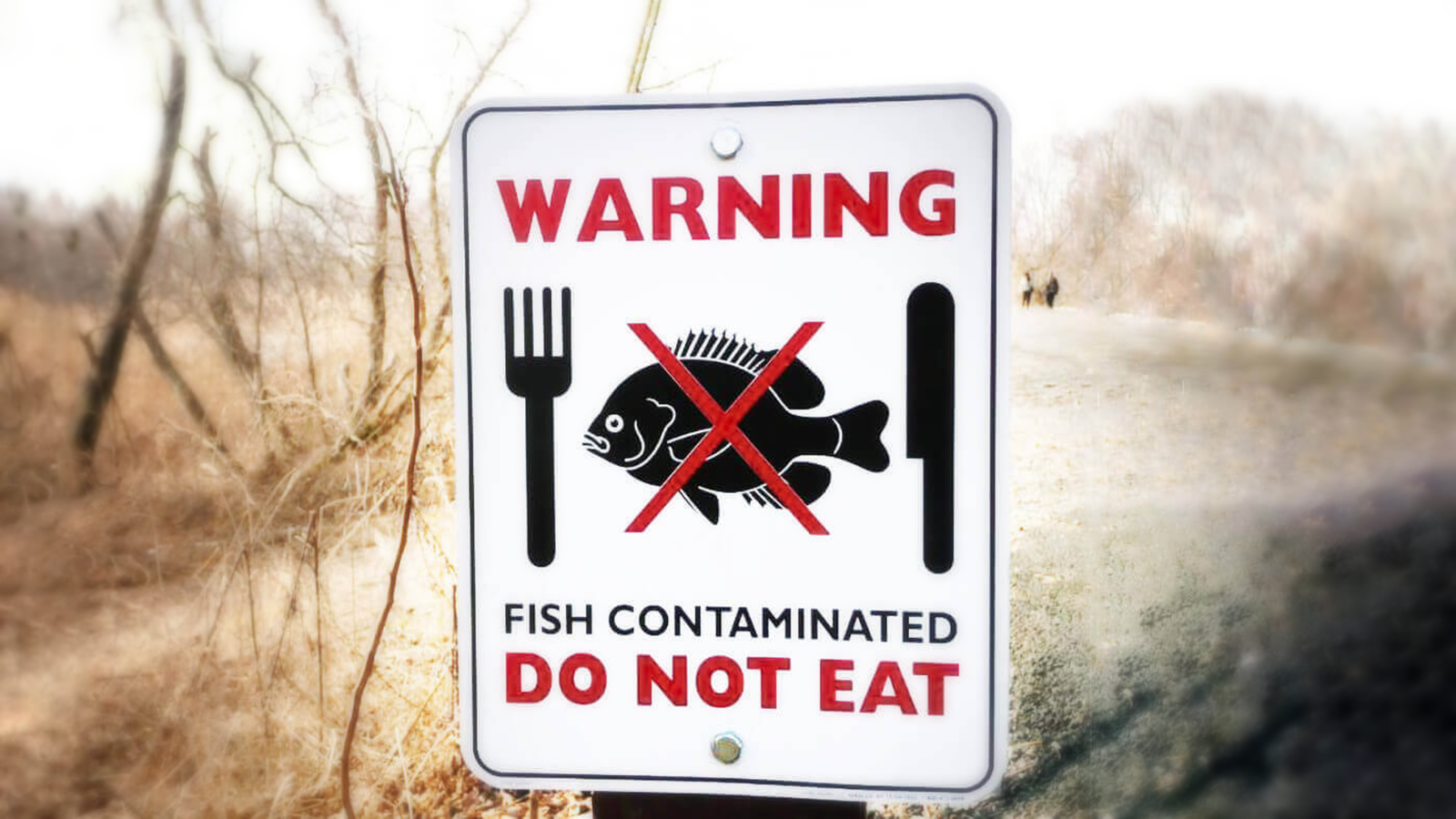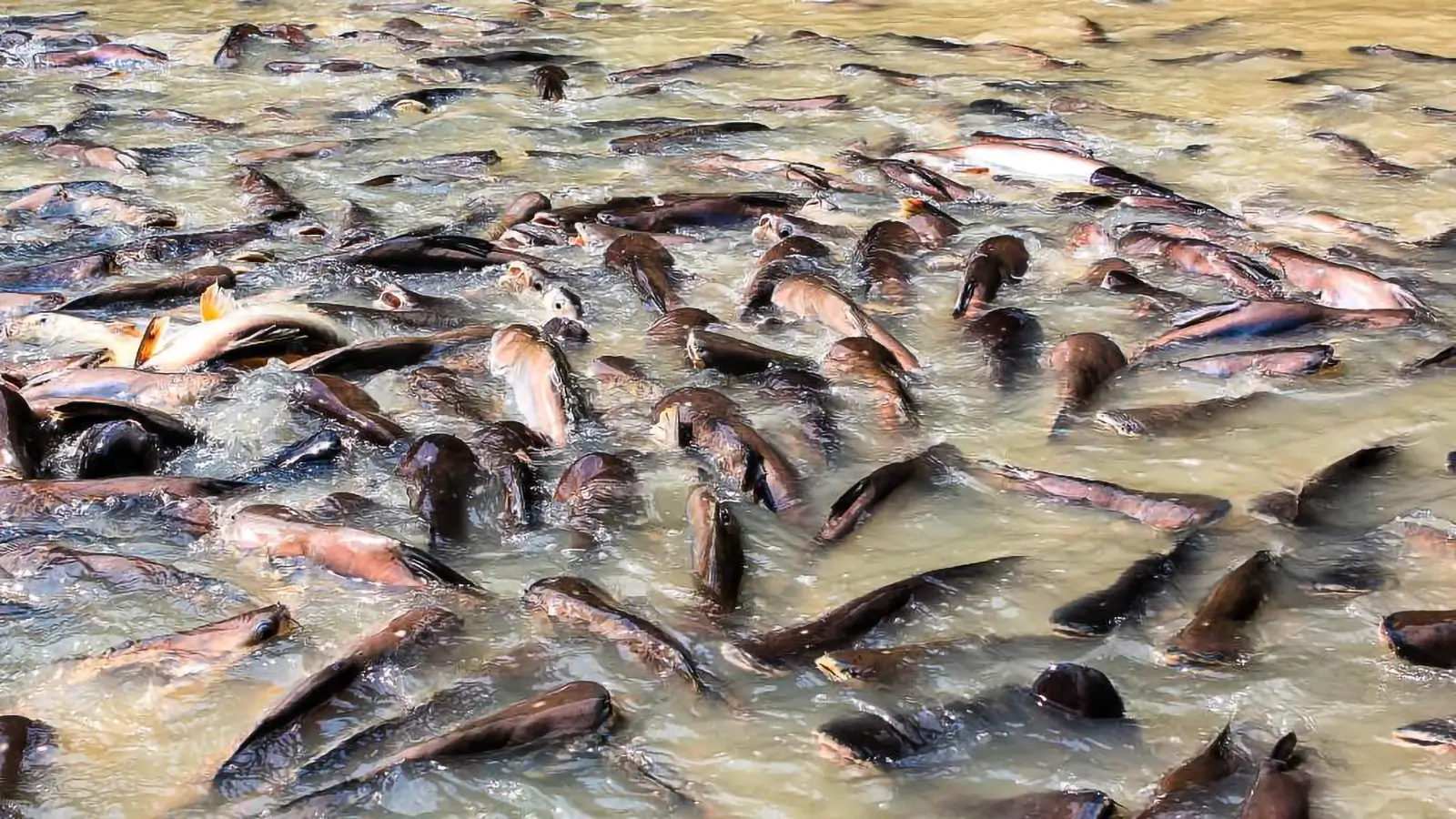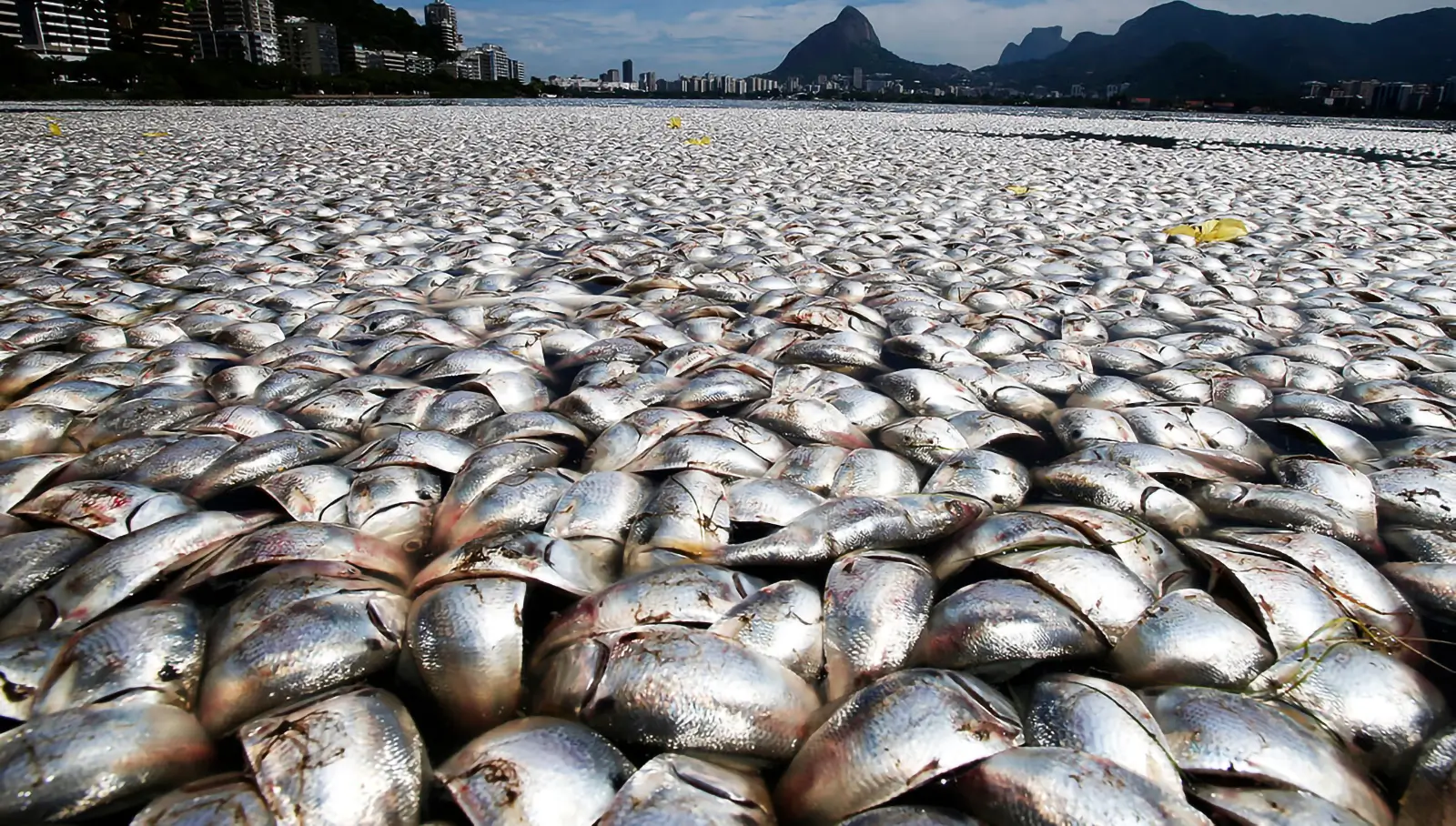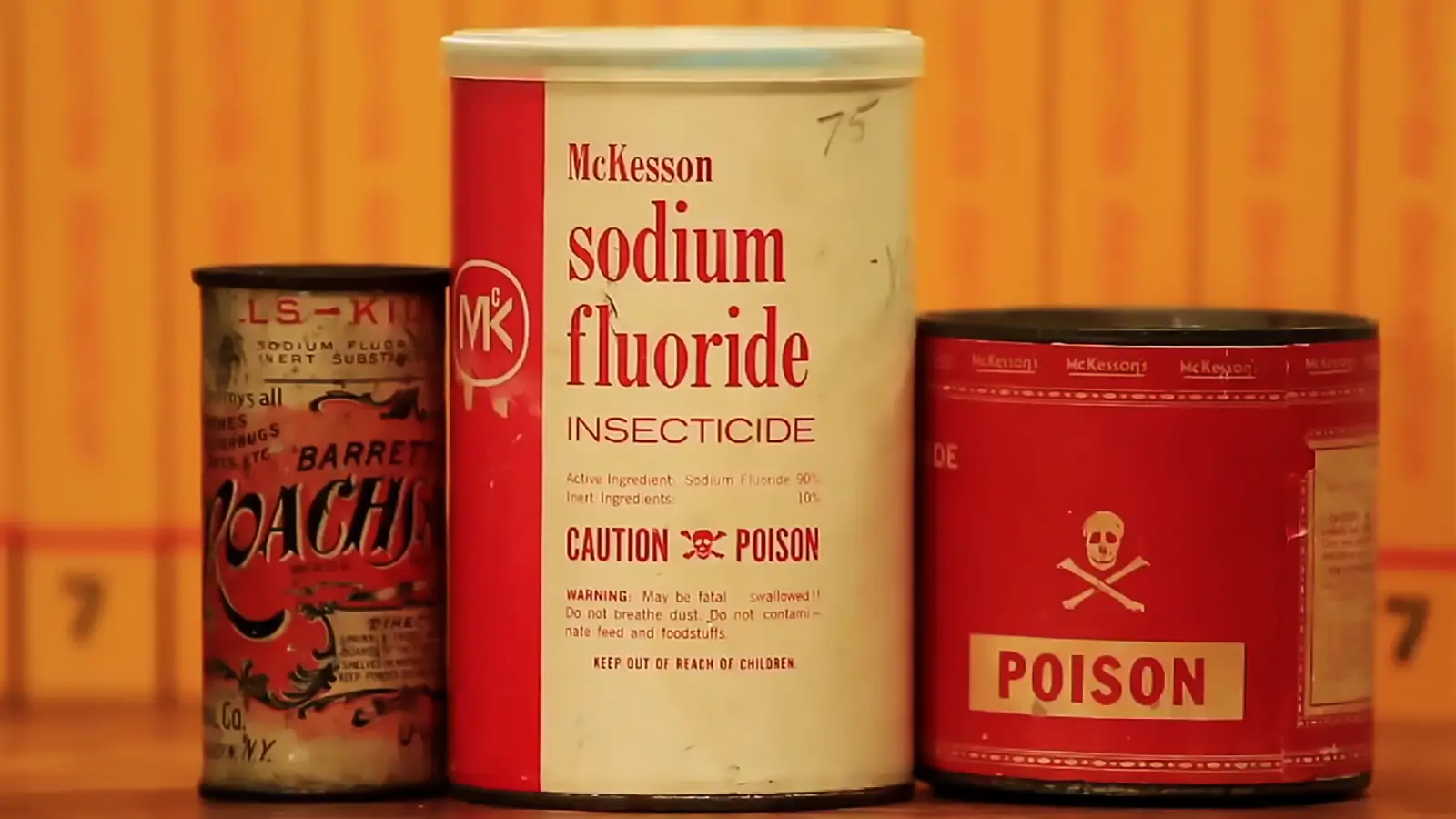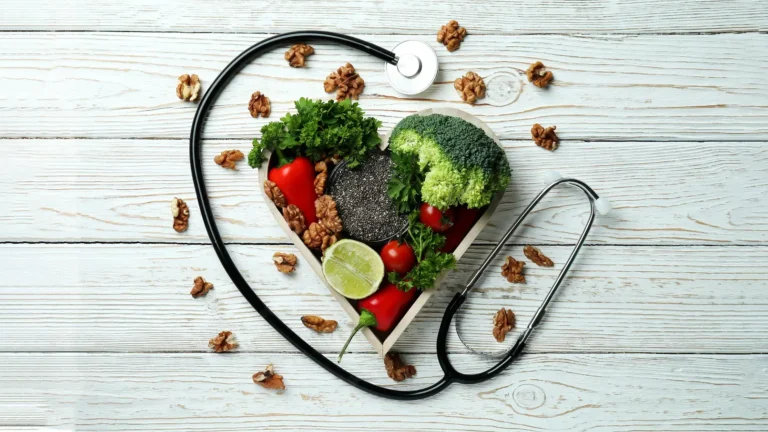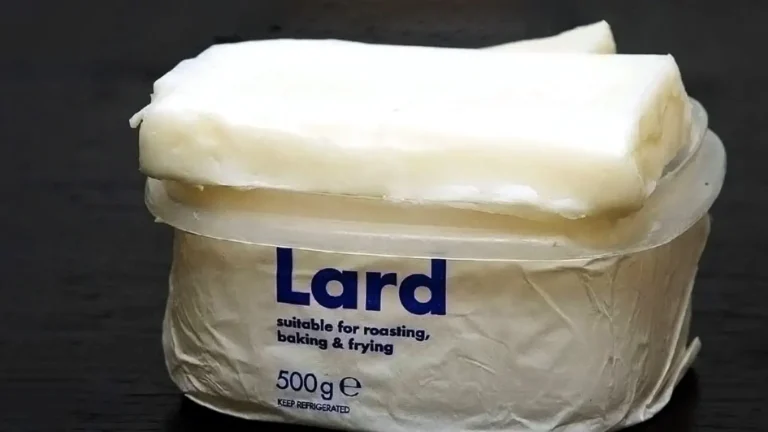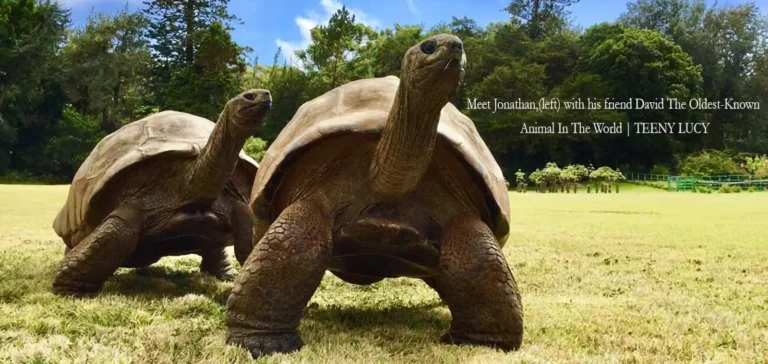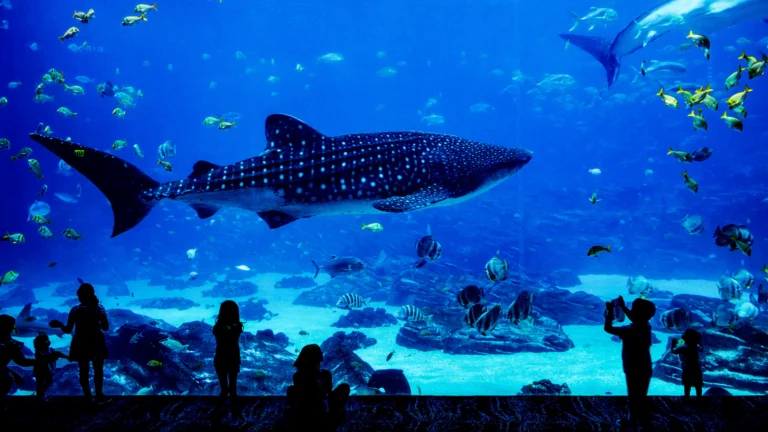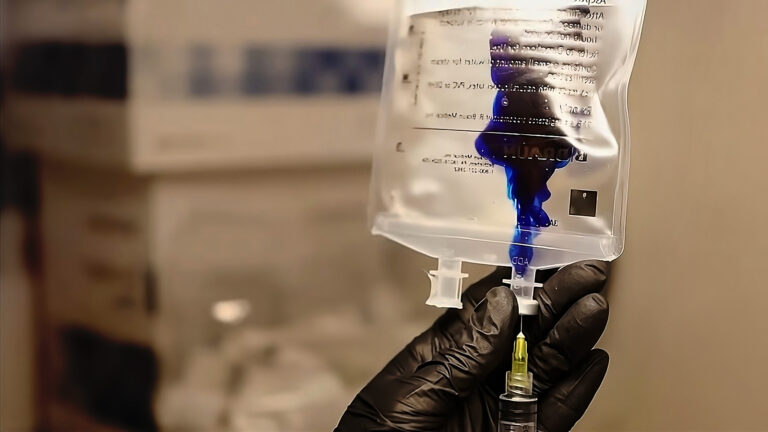Mercúrio- Neurotoxina do Peixe
O mercúrio é um industrial a toxina e o mais neurotóxicos substância conhecida. Plâncton vai absorbe-lo a partir de água do mar e iniciar bioacumulação na cadeia alimentar.
Milos Pokimica
Escrito por: Milos Pokimica
Revisto Clinicamente Por: Dr. Xiùying Wáng, M.D.
Actualizado em 9 de Junho de 2023Estamos a ser ensinados a pensar no peixe como uma forma saudável de carne ou pelo menos uma forma que é uma escolha mais saudável e melhor. A razão é que o peixe tem todos os ácidos gordos ómega 3 saudáveis que precisamos para o nosso cérebro. Precisamos de obter ácidos gordos ómega-3 dos alimentos para evitar o declínio cognitivo relacionado com a idade. Não há animais interiores ómega 3 se não forem deliberadamente alimentados com sementes de linhaça, como no caso dos ovos ómega 3. Os ovos ómega 3 são como os ovos convencionais, excepto que a alimentação das galinhas é suplementada com uma fonte ómega 3 como as sementes de linho. Os peixes obtêm-nos das algas que realmente os produzem e depois, quando os peixes comem algas, estas passam por toda a cadeia alimentar. Além disso, o peixe tende a ter menos calorias do que outras fontes de carne, mas isso pode nem sempre ser o caso.
O problema é que existem mais do que apenas as gorduras ómega 3 nos peixes que provêm da água do mar. Tudo o que está na água, por mais ínfima que seja a concentração, as algas irão filtrar e concentrar dezenas e centenas de vezes mais. Uma coisa que estará presente na água do mar que não está presente na água doce e que o plâncton captará, e também as algas, e que depois bioacumulará na cadeia alimentar, é uma das substâncias mais neurotóxicas conhecidas pela humanidade. Mercúrio.
Estamos a ser ensinados a pensar em venenos de uma forma dose-dependente, porque é assim que a medicina moderna funciona. Alguma coisa é veneno, mas tem uma baixa concentração, por isso está tudo bem. Alguns efeitos secundários e assim por diante. "A dose faz o veneno" (Latim: "sola dosis facit venenum"). É um adágio destinado a indicar um princípio fundamental da toxicologia. É creditado a Paracelsus, o alquimista, e pai da medicina moderna. Agora, isto é correcto para alguns produtos químicos, mas não para todos eles. Algumas toxinas causam danos, e eu argumentarei que a maioria delas causa danos em qualquer exposição. Isto significa que se ingerirmos sequer uma molécula de uma substância, esta causaria danos. Esse dano não seria suficiente para nos matar, mas o dano irá acontecer.
Um excelente exemplo disto é o mercúrio. É tão tóxico para o nosso cérebro que mata células cerebrais ao contacto. Os danos neurológicos são mais graves no útero. Mercúrio ao contacto com neurónios causa atrofia neuronal. Quando entra no cérebro, independentemente da concentração, mesmo que seja um átomo do mesmo, causará danos graves. Se a exposição for significativa, causará atrofia neuronal grave, sem qualquer hipótese de recuperação. Estudos a longo prazo demonstraram que mesmo uma exposição pré-natal minúscula em concentrações muito baixas pode causar uma perda detectável nas áreas da memória, linguagem, e função motora. As crianças são tão sensíveis a ela, por isso, se afectadas, podem ter perda auditiva, perda visual, perturbações convulsivas, atraso no desenvolvimento, e estigmas a longo prazo, incluindo perturbações motoras. Para uma mulher grávida, é proibido comer atum em qualquer quantidade. Além disso, o seu cérebro e corpo podem também ser expostos a mercúrio tóxico através de uma série de outras formas, desde a injecção de uma gripe até ao preenchimento dentário. Para ser razoável aqui, uma lata de atum tem mais mercúrio do que 100 vacinas. Estudos descobriram que as pessoas com obturações dentárias de amálgama podem ter concentrações de vapor de mercúrio dez vezes mais elevadas do que as de pessoas sem elas.
O consumo de peixe fornece nutrientes, mas também fornece metil-mercúrio. Todos os peixes marinhos, e não apenas o atum, contêm metilmercúrio (MeHg), alguns mais e outros menos. Como o efeito tóxico do mercúrio é mais destrutivo durante o desenvolvimento cerebral, a exposição pré-natal é a preocupação mais significativa. O mercúrio é também uma toxina cardíaca, e não apenas a do cérebro. Vou dar aqui um exemplo para colocar as coisas em perspectiva.
No presente estudo (Oken et al., 2008) analisaram as ligações da suscetibilidade das crianças ao mercúrio, tanto de exposição da gravidez da mãe e do consumo de peixe. O timerosal das vacinas foi estudado, bem como o impacto da amálgama dentária no desenvolvimento neurológico infantil. No passado, as vacinas utilizavam algo chamado thimerosal, que é um conservante que contém mercúrio. Para colocar isto em perspectiva.
Comer uma única porção de atum tinha o mesmo nível de mercúrio que 100 (cem) vacinas timerosas.
O resumo do estudo foi:
"A exposição ao mercúrio pode prejudicar o desenvolvimento infantil. As intervenções destinadas a reduzir a exposição a baixos níveis de mercúrio no início da vida devem, contudo, ser cuidadosamente avaliadas tendo em consideração os danos potenciais decorrentes das alterações de comportamento resultantes, tais como a redução da exposição ao ácido docosahexaenóico devido a uma menor ingestão de frutos do mar, a redução da absorção de vacinas infantis, e os cuidados dentários sub-óptimos".
O timerosal foi retirado da maioria das vacinas que as crianças pequenas obtêm em 2001, com excepção da vacina contra a gripe, que ainda contém pequenas quantidades. No entanto, que tal algo cem vezes pior. Uma única dose de atum enlatado. Quantas porções comemos durante a nossa vida? Que tal todos os outros peixes? Não é apenas atum, todo o peixe tem um pouco mais de mercúrio, um pouco menos e não é apenas mercúrio. Utilizo aqui o mercúrio apenas como exemplo. Há toda uma lista de outros metais pesados como o mercúrio que permanecerão no nosso oceano por toda a eternidade e nunca se biodegradarão porque são partículas elementares. Além disso, há mil outros poluentes não-orgânicos resistentes que também não se degradaram e bioacumularam e microplásticos, e a lista prossegue. A razão pela qual esta toxina é altamente concentrada e altamente tóxica em tais níveis no atum é que o atum é um peixe predador no topo da cadeia alimentar. No fundo de uma cadeia alimentar encontram-se plâncton e algas que filtram a água do mar e, em seguida, a concentração será dez a cem vezes superior à da água, mas que ainda assim será baixa. Depois, estas substâncias começam a acumular-se à medida que avançamos na cadeia alimentar. À medida que os peixes maiores comem os peixes mais pequenos, também comem todas as suas toxinas. Quando chegamos ao topo da cadeia alimentar, a situação é como é. A única solução é ir para baixo na cadeia alimentar.
Não coma carne dos oceanos e, especialmente, não coma peixes predadores como o atum. Mesmo os suplementos de DHA molecularmente destilados estão comprovadamente poluídos com metais pesados e toxinas. Até mesmo o óleo de krill que as pessoas começaram a substituir o óleo de peixe para evitar a poluição foi comprovadamente poluído. O krill tem uma vida muito curta e o óleo de krill continua a estar altamente poluído. Se quer ómega 3, coma linho. O linho tem lignanas que têm uma vasta gama de benefícios para a saúde, incluindo a prevenção do cancro da mama, minerais e fibras e é um dos alimentos mais saudáveis que pode obter. Se quiser um suplemento como vegan, ainda pode obter óleo de DHA à base de algas. Nunca, e vou repetir, nunca coma nada do mar, mesmo se estiver grávida ou se for uma criança, se for do reino animal oceânico, ponto final, seja vegan ou não. Se comer atum e estiver à espera de bebé, acabou de baixar o QI do seu bebé numa quantidade mensurável ou pior.
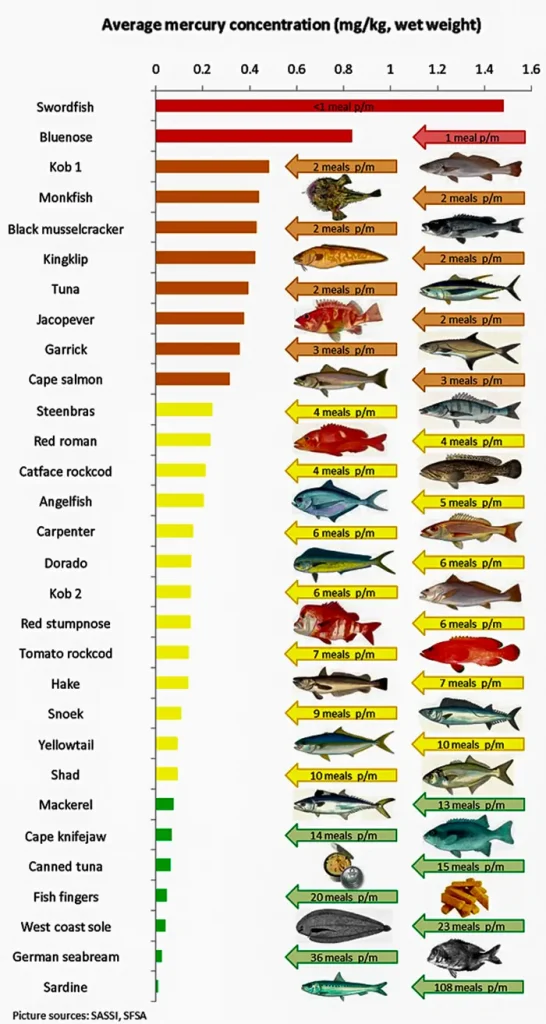
Houve uma grande preocupação do público e desconfiança nas vacinas e na possibilidade de ligações com o autismo e outras doenças. No entanto, não houve qualquer protesto público sobre o consumo de peixe. A toxicidade dos peixes é a fonte número um de mercúrio no mundo. O mercúrio no peixe é tão concentrado que, por todos os motivos, algumas das espécies de peixe deveriam ser proibidas por lei para serem utilizadas como alimento humano. Uma única porção é pior do que todas as vacinas que o seu filho receberá na sua vida, se olharmos apenas para os níveis de mercúrio.
E o cádmio?
E os PCBs, PBDEs, dioxinas e pesticidas clorados?
Como o mercúrio é uma neurotoxina, pensava-se que era a causa subjacente da ligação entre o autismo e a vacinação. Hoje em dia, mais crianças obtêm autismo mesmo sem mercúrio nas vacinas e a estimativa é de que este número irá crescer. Este é um grande assunto a analisar, e direi que a maioria das vacinas pode ser perigosa só por si e pode causar danos, mas salva muitas vidas e no final, continua a ser a questão da confiança nas empresas que fornecem essas vacinas.
Referências:
- Oken, E., & Bellinger, D. C. (2008). Consumo de peixe, metilmercúrio e neurodesenvolvimento infantil. Opinião atual em pediatria, 20(2), 178-183. https://doi.org/10.1097/MOP.0b013e3282f5614c
Publicações Relacionadas
Você tem alguma dúvida sobre saúde e nutrição?
Eu adoraria ouvir de você e respondê-las em meu próximo post. Agradeço sua contribuição e opinião e espero ouvir de você em breve. Eu também convido você a siga-nos no Facebook, Instagram e Pinterest para mais conteúdos sobre dieta, nutrição e saúde. Pode deixar um comentário e ligar-se a outros entusiastas da saúde, partilhar as suas dicas e experiências e obter apoio e encorajamento da nossa equipa e comunidade.
Espero que este post tenha sido informativo e agradável para si e que esteja preparado para aplicar os conhecimentos que aprendeu. Se achou este post útil, por favor partilhá-lo com os seus amigos e familiares que também possam beneficiar com isso. Nunca se sabe quem poderá precisar de alguma orientação e apoio no seu percurso de saúde.
– Você Também Pode Gostar –

Aprender Sobre Nutrição
Milos Pokimica é médico de medicina natural, nutricionista clínico, escritor de saúde e nutrição médica, e conselheiro em ciências nutricionais. Autor da série de livros Go Vegan? Revisão de Ciênciaopera também o website de saúde natural GoVeganWay.com
Medical Disclaimer
GoVeganWay.com traz análises das pesquisas mais recentes sobre nutrição e saúde. As informações fornecidas representam a opinião pessoal do autor e não pretendem nem implicam substituir aconselhamento, diagnóstico ou tratamento médico profissional. As informações fornecidas são apenas para fins informativos e não se destinam a servir como substituto para consulta, diagnóstico e/ou tratamento médico de um médico ou profissional de saúde qualificado.NUNCA DESCONSIDERE o CONSELHO MÉDICO PROFISSIONAL OU adiar a BUSCA de TRATAMENTO MÉDICO por causa DE ALGO QUE TENHA LIDO OU ACESSADO por MEIO de GoVeganWay.com
NUNCA APLIQUE QUAISQUER MUDANÇAS de estilo de VIDA OU QUALQUER MUDANÇA COMO UMA CONSEQUÊNCIA DE ALGO QUE TENHA LIDO NO GoVeganWay.com ANTES de CONSULTORIA de LICENÇA MÉDICA.
No caso de uma emergência médica, ligue para o médico ou para o 911 imediatamente. GoVeganWay.com não recomenda ou endossa qualquer específicos, grupos, organizações, exames, médicos, produtos, procedimentos, opiniões ou outras informações que podem ser mencionadas dentro.
Sugestões do Editor –
Milos Pokimica é médico de medicina natural, nutricionista clínico, escritor de saúde e nutrição médica, e conselheiro em ciências nutricionais. Autor da série de livros Go Vegan? Revisão de Ciênciaopera também o website de saúde natural GoVeganWay.com
Artigos Mais Recentes -
Planta De Notícias Com Base Em
-
11 Vegan Summer Lunches
on Junho 21, 2025
-
This Watermelon Gazpacho Is A Fresh And Wholesome Summer Starter
on Junho 21, 2025
-
Sticky Marmalade Tofu
on Junho 20, 2025
-
Violife Launches ‘Market-First’ High-Protein Cheddar Alternative
on Junho 20, 2025
-
How to Make Homemade Tofu And Why You’ll Never Want Store-Bought Again
on Junho 20, 2025
-
US Senate Moves To Expand Nondairy Milk Access In Schools
on Junho 20, 2025
-
Vegan Avocado Lime Ice Cream
on Junho 19, 2025
Superior De Saúde De Notícias — ScienceDaily
- Diabetes drug cuts migraines in half by targeting brain pressureon Junho 21, 2025
A common diabetes drug may be the next big thing for migraine relief. In a clinical study, obese patients with chronic migraines who took liraglutide, a GLP-1 receptor agonist, experienced over 50% fewer headache days and significantly improved daily functioning without meaningful weight loss. Researchers believe the drug s ability to lower brain fluid pressure is the key, potentially opening a completely new way to treat migraines. The effects were fast, sustained, and came with only mild side […]
- Cold sore virus hijacks human genome in 3D–and scientists found its weak spoton Junho 20, 2025
Cold sore-causing HSV-1 doesn’t just hijack cells it reconfigures the entire architecture of our DNA to aid its invasion. Researchers discovered that it actively reshapes the 3D structure of the human genome within hours of infection, using host enzymes like topoisomerase I to gain access to crucial genetic machinery. Stunningly, blocking this single enzyme shuts the virus down completely.
- Fitness trackers are failing millions — this fix could change everythingon Junho 20, 2025
Fitness trackers often fail people with obesity by underestimating their energy burn, leading to discouraging results and misguided health data. A scientist’s frustrating experience in an exercise class with his mother-in-law where her effort wasn t reflected on the fitness leaderboard sparked a breakthrough. His team at Northwestern developed a new open-source smartwatch algorithm that accurately captures energy expenditure for individuals with obesity, rivaling gold-standard lab equipment and […]
- Self-esteem skyrockets 131% after weight-loss surgery, study revealson Junho 20, 2025
Self-esteem scores jumped a remarkable 131% within just one year of bariatric surgery, according to a large study presented at ASMBS 2025. Tracking nearly 5,800 patients, researchers found a direct link between weight loss and rising confidence, with the greatest psychological boosts seen in those who lost the most weight. Despite differences in gender, race, or procedure type, patients across the board reported profound improvements in self-worth. The findings shine a spotlight on how […]
- 99 trials later, fasting ties traditional diets in weight-loss showdownon Junho 19, 2025
Intermittent fasting might not be a miracle solution, but it stands shoulder to shoulder with traditional calorie-cutting when it comes to shedding pounds and improving metabolic health. A major new analysis reveals that alternate day fasting may have a slight edge, yet none of the methods alone reached clinically meaningful thresholds for weight loss.
- One shot to stop HIV: MIT’s bold vaccine breakthroughon Junho 19, 2025
Researchers from MIT and Scripps have unveiled a promising new HIV vaccine approach that generates a powerful immune response with just one dose. By combining two immune-boosting adjuvants alum and SMNP the vaccine lingers in lymph nodes for nearly a month, encouraging the body to produce a vast array of antibodies. This one-shot strategy could revolutionize how we fight not just HIV, but many infectious diseases. It mimics the natural infection process and opens the door to broadly […]
- Microscopic heist: How lung bacteria forge weapons to steal iron and surviveon Junho 19, 2025
Researchers investigating the enigmatic and antibiotic-resistant Pandoraea bacteria have uncovered a surprising twist: these pathogens don’t just pose risks they also produce powerful natural compounds. By studying a newly discovered gene cluster called pan, scientists identified two novel molecules Pandorabactin A and B that allow the bacteria to steal iron from their environment, giving them a survival edge in iron-poor places like the human body. These molecules also sabotage rival bacteria […]
PubMed, #vegan-dieta –
- Planting Rights and Feeding Freedom: Navigating the Right to a Vegan Diet in Hospitals and Prisonson Junho 20, 2025
The legal recognition of veganism highlights the evolving landscape of dietary choices and their status under human rights law. This paper examines the legal status of vegan diets under the European Convention on Human Rights (ECHR), focusing on public institutions such as prisons and hospitals. By analyzing the first relevant cases before the European Court of Human Rights, it explores the protection of vegan diets under Articles 9 (freedom of thought, conscience, and religion) and 14…
- Dietary pattern and nutritional assessment in a cohort of mothers identified by neonatal screening for cobalamin deficiency in offspring: an Italian single center experienceon Junho 19, 2025
During pregnancy, nutrient requirements increase while deficiencies can significantly affect pregnancy outcomes. Deficiencies may result from inadequate dietary intake, impaired absorption, or restrictive diets. This study aimed to retrospectively assess the nutritional status and dietary intakes in a cohort of mothers whose newborns were identified with vitamin B12 deficiency of maternal origin through Newborn Screening. Between 2021 and 2024, 107 newborn-mother dyads with altered biomarkers […]
- Intermittent fasting strategies and their effects on body weight and other cardiometabolic risk factors: systematic review and network meta-analysis of randomised clinical trialson Junho 18, 2025
CONCLUSIONS: Minor differences were noted between some intermittent fasting diets and continuous energy restriction, with some benefit of weight loss with alternate day fasting in shorter duration trials. The current evidence provides some indication that intermittent fasting diets have similar benefits to continuous energy restriction for weight loss and cardiometabolic risk factors. Longer duration trials are needed to further substantiate these findings.
- Plant-Based Diet and Risk of Iron-deficiency Anemia. A Review of the Current Evidence and Implications for Preventive Strategieson Junho 17, 2025
PURPOSE OF REVIEW: This review provides a comprehensive overview of iron metabolism, emphasizing the influence of dietary patterns-particularly vegetarian and vegan diets-on iron status and associated health outcomes.
- Protein Intake and Protein Quality Patterns in New Zealand Vegan Diets: An Observational Analysis Using Dynamic Time Warpingon Junho 13, 2025
Background/Objectives: Inadequate intake of indispensable amino acids (IAAs) is a significant challenge in vegan diets. Since IAAs are not produced or stored over long durations in the human body, regular and balanced dietary protein consumption throughout the day is essential for metabolic function. The objective of this study is to investigate the variation in protein and IAA intake across 24 h among New Zealand vegans with time-series clustering, using Dynamic Time Warping (DTW). Methods:…
Postagens aleatórias –
Postagens em destaque –

Últimas do PubMed, #dieta baseada em vegetais –
- Optimal intake of animal-source foods: a scoping review to inform a new WHO guidelinepor Magali Rios-Leyvraz on Junho 20, 2025
CONCLUSION: This scoping review offers a comprehensive overview of existing evidence on animal-source foods and health outcomes and identifies key research gaps to support the development of new nutrition guidelines.
- Specialist Savvy Versus Generalist Grit: Elucidating the Trade-Offs in Adaptive Dietary Ecomorphology Amongst African Green and Bush Snakespor Hanlie M Engelbrecht on Junho 19, 2025
Kinetic feeding bones of macrostomatan Afrophidian snakes enable them to consume diverse prey types. While significant research has focused on functional feeding morphology in snakes, it often emphasizes broad taxonomic comparisons or species with distinct dietary ecologies. There is limited knowledge of how small variations in prey type composition may influence feeding morphology among closely related species sharing similar ecological niches. African Green and Bush Snakes (Philothamnus) […]
- Chia (Salvia hispanica L.) Seed Oil Supplementation to the Diet: Effects on in Vitro Rumen Fermentation Characteristics and Lipid Biohydrogenationpor Selma Büyükkılıç Beyzi on Junho 19, 2025
The study investigated the effects of chia seed oil supplementation on the diet with different levels of in vitro ruminal biohydrogenation and fermentation. The treatment groups were control (no additional oil) or the addition of 10, 20 and 30 g/kg of chia seed oil in the diet as DM based. The treatment groups were incubated using a batch culture technique, and the fermentation terminated after 6, 12, and 24 h. The biohydrogenation rate of unsaturated fatty acids varied between 71% and 98% […]
- Plant-based milk alternatives: can they replace the iodine from UK cow’s milk?por Katie Nicol on Junho 18, 2025
Current food systems pose risks to both population and environmental health. Reducing the intake of animal-based foods, such as dairy products, and increasing consumption of plant-based foods align with priorities for addressing climate change and promoting overall health. Plant-based alternatives to cow’s milk can be readily substituted for cow’s milk without altering meal patterns and food habits, making them a popular choice among those reducing animal-product consumption. However,…
- Diet quality, unprocessed plant-based foods, and vascular function in adults with CKD: Secondary analysis of a pilot randomized clinical trialpor Luis Perez on Junho 18, 2025
CONCLUSION: Despite overall low diet quality, higher consumption of unprocessed, plant-based energy and nutrients was associated with lower arterial stiffness. Future studies are needed to explore these associations in larger cohorts with CKD and the effects of diet quality interventions.
- Biaxial testing and sensory texture evaluation of plant-based and animal deli meatpor Skyler R St Pierre on Junho 18, 2025
Animal agriculture is one of the largest contributors to global carbon emissions. Plant-based meats offer a sustainable alternative to animal meat; yet, people are reluctant to switch their diets and spending habits, in large part due to the taste and texture of plant-based meats. Deli meat is a convenient form of protein commonly used in sandwiches, yet little is known about its material or sensory properties. Here we performed biaxial testing with multiple different stretch ratios of four…
